Politics
The grandson of Leon Trotsky, the last witness to his assassination there in 1940, died in Mexico
The news was announced by the Mexican newspaper “La Hornada”, referring to the statements of his family and friends on social networks
Vsevolod Volkov, who is the grandson of Lev Trotsky – one of the organizers of the October Revolution in 1917, died at the age of 97 in Mexico, the Mexican newspaper “Hornada” reported, citing statements by his family and friends on social media networks.
Volkov was born in the former Soviet Union in 1926, and in 1939, together with his grandfather Leon Trotsky, he arrived in Mexico, where he studied chemistry. In 1990, the grandson turned the family home in the Mexican capital into a house-museum of Trotsky, writes in “Hornada”. The newspaper notes that Volkov was the last witness to the assassination of Trotsky in 1940 in Mexico.
Shortly before Lenin’s death in 1924, an internal power struggle began in the Leon Trotskyof Russia, in which Leon Trotsky was defeated. In November 1927 he was expelled from the party, and in 1929 he was expelled from the former Soviet Union. In 1932, Trotsky was also deprived of his then Soviet citizenship, TASS recalls.
In 1937, Trotsky received political asylum in Mexico, from where he sharply criticized Stalin’s policies. It soon became known that his assassination was being prepared by agents of the then Soviet intelligence. On May 24, 1940, the first assassination attempt was made on Trotsky, but he survived. On August 20, 1940, however, the secret agent of the then People’s Commissariat of the Interior, Ramon Mercader, a pro-Stalinist Spanish communist who had been introduced in the 1930s in his immediate environment, came to visit him and managed to kill him at his home in the Mexican capital.
Trotsky knew that he was a constant target for Stalin, and that he would be hunted down with a vengeance. He predicted that there would be further attempts to take his life, and he was right. What Trotsky didn’t expect was that an odd fellow named Ramon Mercader, who was living under the pseudonym Jacques Mornard and was dating Trotsky’s secretary Sylvia Ageloff, would be the one to finally kill him. Mercader pretended to sympathize with and support Trotsky’s views so as to not seem suspicious or raise any cause for concern.
On August 20, 1940, Trotsky was back to his daily routine of enjoying nature and writing about politics. Mercader had asked to meet with him that evening to show him an article about James Burnham and Max Shachtman. Trotsky obliged, though Natalia notes that he would have rather stayed in the garden, feeding the rabbits or left to himself; Trotsky always found Mercader to be a bit off and irritating. Natalia accompanied the two men to Trotsky’s study and left them there. She found it bizarre that Mercader was wearing a raincoat in the middle of summer. When she asked him why he was wearing it along with rainboots, he replied curtly, (and for Natalia, absurdly), “because it might rain.” No one knew at the time that the murder weapon, the ice axe, was concealed underneath the raincoat. Within a matter of minutes, a piercing and terrifying cry could be heard from the next room over.
Photo: Leon Trotsky, photographed c.1918. Rijksmuseum.
Politics
Critical Oversight: ODIHR Prepares for Local Elections in Bosnia and Herzegovina
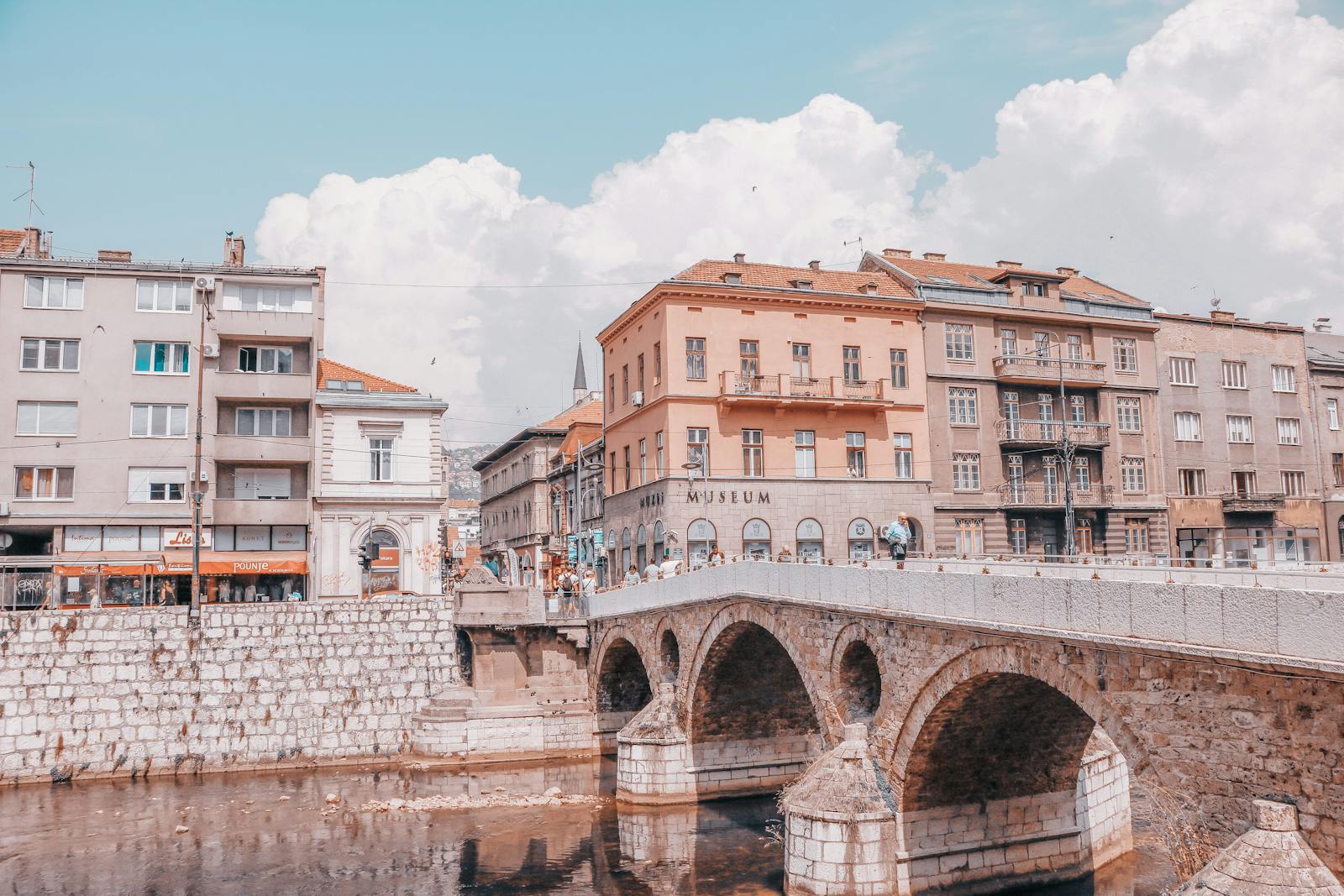
SARAJEVO, 30 August 2024 – In a critical step toward upholding democratic standards, the Organization for Security and Co-operation in Europe (OSCE) Office for Democratic Institutions and Human Rights (ODIHR) has officially opened an election observation mission in Bosnia and Herzegovina for the upcoming local elections scheduled for 6 October 2024. This initiative follows an official invitation from the national authorities and the results of a needs assessment mission conducted in May.
Heading the mission is Corien Jonker, who will lead a core team of 11 international experts based in Sarajevo. In addition, the mission will deploy 20 long-term observers throughout the country starting on 6 September. To bolster the observation efforts further, ODIHR plans to request an additional 300 short-term observers, who are expected to arrive several days prior to election day.
The primary objective of the mission is to assess the elections’ compliance with OSCE commitments, international obligations, and standards for democratic elections, as well as with the national legislation of Bosnia and Herzegovina. Observers will meticulously monitor key aspects of the electoral process, which includes both offline and online campaign activities, the performance of the election administration at all levels, the implementation of election legislation, and the overall respect for fundamental freedoms.
A significant focus will also be placed on evaluating the work of public and private media during the election period and monitoring the resolution of any election disputes that may arise. Additionally, observers will assess the implementation of previous ODIHR recommendations related to electoral processes in the region.
Integral to the observation mission is the engagement with a diverse array of stakeholders. This includes meetings with national authorities, representatives of political parties, civil society organizations, media entities, and members of the international community. Such interactions will provide vital insights into the electoral environment and the challenges faced during the election period.
To keep the public informed, the ODIHR will release an interim report approximately two weeks before the elections, detailing the mission’s observations and activities up until that point. Following the elections, a statement of preliminary findings and conclusions will be presented at a press conference the day after the polling. A comprehensive final report assessing the entire election process, complete with recommendations for future improvements, will be published in the months following the elections.
As Bosnia and Herzegovina approaches these crucial local elections, the ODIHR’s commitment to monitoring and assessing the democratic process underscores the importance of transparency and accountability in fostering a robust electoral environment.
Politics
German MEP Dennis Radtke takes on influential role in the European Parliament
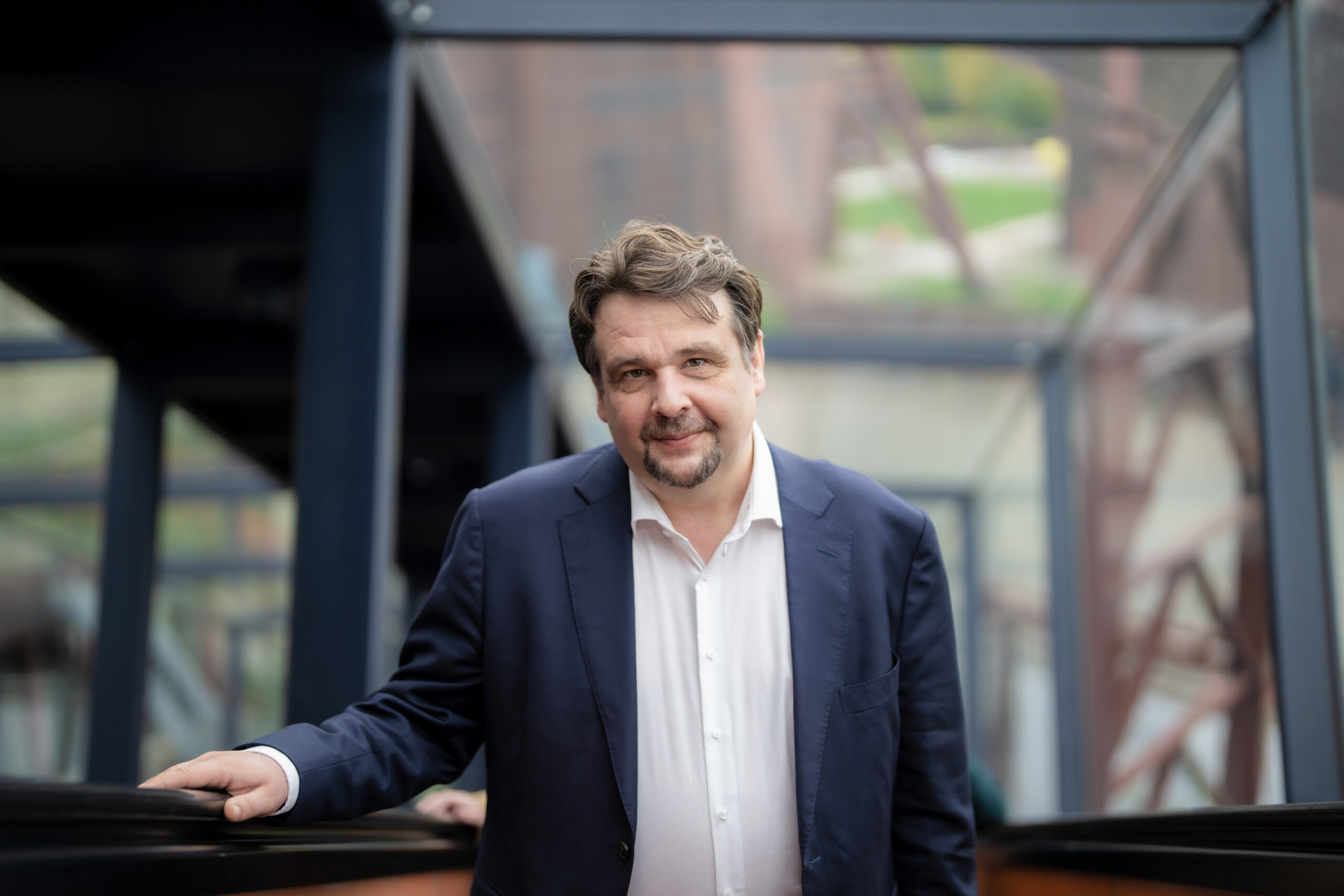
STRASBOURG/BRUSSELS/BERLIN/DÜSSELDORF/BOCHUM. Yesterday, Wednesday (17 July 2024), Dennis Radtke MEP from North Rhine-Westphalia (NRW) in Germany was confirmed as social policy spokesperson for the EPP Group in Strasbourg, where the European Parliament is being constituted this week.
“I am delighted to be able to continue to lead the EPP Group in the European Parliament’s Committee on Employment and Social Affairs (EMPL) and promote social policy issues,” said Dennis Radtke shortly after his election.
He also immediately formulated his clear ambition: “There is still a lot to do on the road to a more social Europe and we as the EPP Group want to play a leading role in this.”
According to the CDU politician, many projects have already been implemented: a European Minimum Wage, strengthening the rights of platform workers, social and climate funds and a European care strategy. “The great trust placed in me by my colleagues in the EPP Group motivates me strongly to continue actively working for a socially just Europe,” continued Radtke.
In his role as so-called coordinator of his political group, Dennis Radtke decides, for example, on the distribution of legislative and non-legislative reports and basically steers the work in the EMPL Committee.
One of Radtke’s next important projects for the new 10th parliamentary term of the European Parliament is to improve the protection of workers. “In its new mandate, the European Labour Authority (ELA) must be given every opportunity to enforce worker protection in the European Union, including across borders,” says the CDU politician.
Dennis Radtke is 45 years old, married and the father of two children. He comes from Wattenscheid (Bochum, Germany) and has been a member of the European Parliament since 2017. Radtke is a member of the Committees on Employment and Social Affairs (EMPL) and on the Environment, Public Health and Food Safety (ENVI).
The German CDU politician is President of the European Union of Christian Democratic Workers (EUCDW), Deputy Federal Chairman and North Rhine-Westphalian State Chairman of the Christian Democratic Workers’ Union (CDA), the CDU’s labour wing. At the CDA national conference on 14 and 15 September 2024 in Weimar (Thuringia), Dennis Radtke will run for the federal chairmanship of the CDA Germany in succession to Minister Karl-Josef Laumann MdL.
Politics
Roberta Metsola re-elected as President of the European Parliament
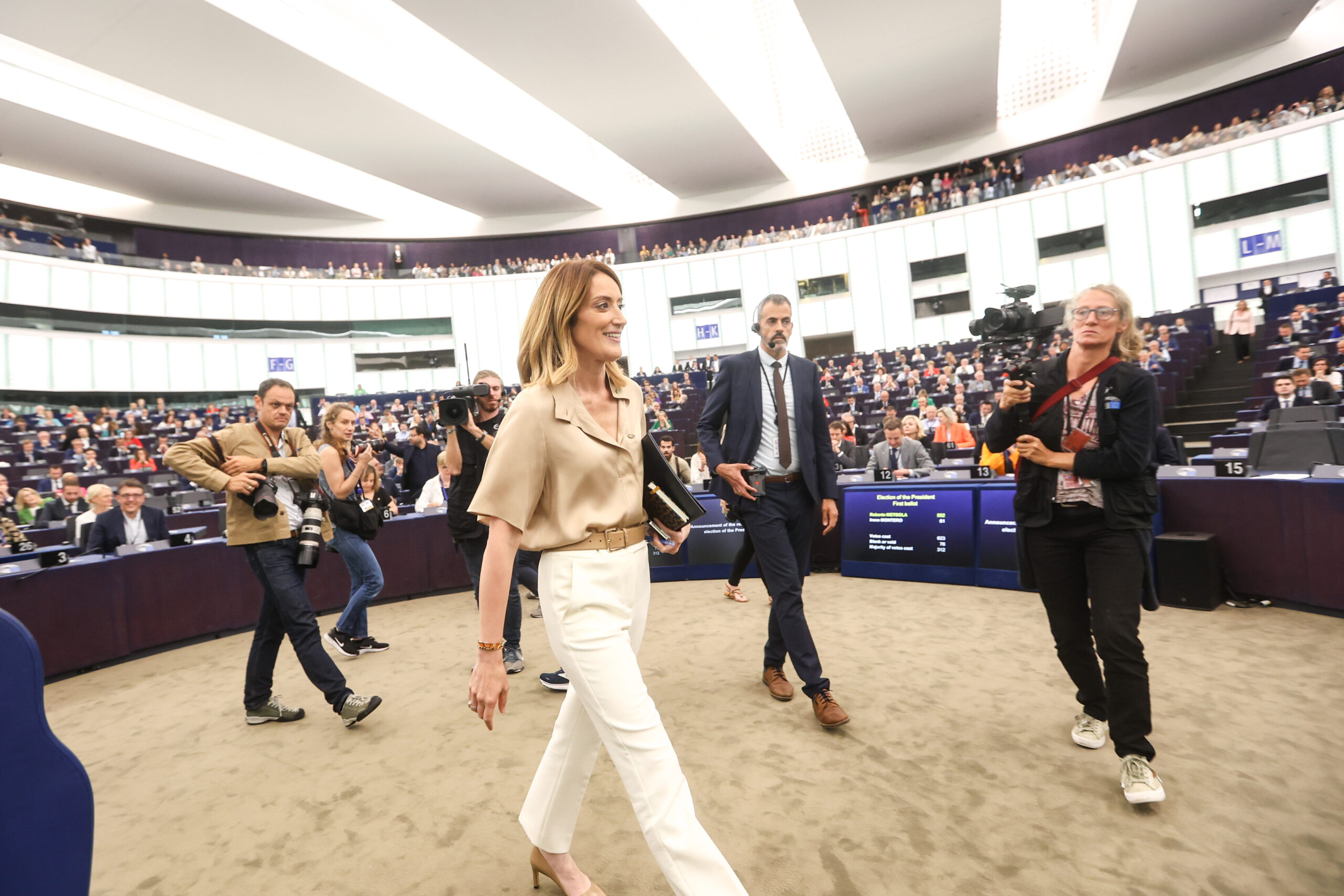
On Tuesday, MEPs re-elected Roberta Metsola (EPP, MT) as President of the European Parliament until 2027, with 562 votes in the first round.
Roberta Metsola won the election in the first round of voting, where she received an absolute majority of 562 votes cast out of 699 by secret paper ballot, among two candidates. She will continue to lead Parliament for the first two and a half years of the 10th legislative term.
Voting results
- Roberta Metsola (EPP, MT) 562
- Irene Montero (The Left, ES) 61
Total votes cast: 699
Blank or invalid votes: 76
Absolute majority needed: 312
Who is Roberta Metsola
Born in Malta in 1979, Roberta Metsola has been an MEP since 2013. She was elected First Vice-President in November 2020, and was Parliament’s acting President after President Sassoli passed away on 11 January 2022. On 18 January 2022, she was elected President for the second half of the 9th legislative term. She is the third female President of the European Parliament, after Simone Veil (1979-1982) and Nicole Fontaine (1999-2002).
Addressing the House after she was elected, President Metsola said: “Together, we must stand up for the politics of hope, for the dream that is Europe. I want people to recapture a sense of belief and enthusiasm for our project. A belief to make our shared space safer, fairer, more just and more equal. A belief that together we are stronger and we are better. A belief that ours is a Europe for all.”
A full version of the President’s address will soon be available on Parliament’s website.
-

 Sports6 days ago
Sports6 days agoOfficial: Juventus announces sixth purchase
-

 Health & Society6 days ago
Health & Society6 days agoThe intoxicated society
-
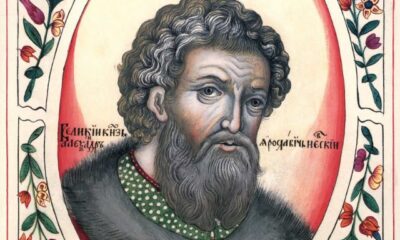
 Politics4 days ago
Politics4 days agoThe Russian patriarch to Putin: You are the first truly Orthodox president
-

 Sports5 days ago
Sports5 days agoBeautiful Juve: Vlahovic and youth rout Verona. Thiago Motta first
-

 Sports5 days ago
Sports5 days agoJuventus, Vlahovic: “Now we play a different game.”
-

 Health & Society2 days ago
Health & Society2 days ago7 Superfoods That Will Boost Your Fitness Results
-
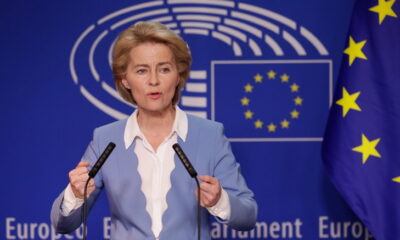
 Politics2 days ago
Politics2 days agoStatement by President von der Leyen at the joint press conference with President Metsola following the European Parliament Plenary vote
-

 Sports6 days ago
Sports6 days agoNapoli rears its head again, Empoli pulls off a feat in Rome









